William P. Van Wagenen, MD 1897-1961
The William P. Van Wagenen Fellowship was established by the estate of William P. Van Wagenen, MD, a founder and first President of the Harvey Cushing Society (now the American Association of Neurological Surgeons). In considering what permanent contribution he would make to neurosurgery, Dr. Van Wagenen chose to provide financial support to a neurosurgical resident for foreign travel and study, following his or her residency. The Van Wagenen Fellowship is awarded prior to the start of a senior resident’s academic career, to further his or her scientific and clinical knowledge, giving the recipient freedom in scientific and clinical development, without the limitations often imposed by many research grants and fellowships.
Recipients of this award have used the endowment to lay the groundwork for many scientific and technical innovations in neurosurgery. The fellowship remains an unmatched opportunity to explore new lines of investigation, foster academic and research goals, incorporate new technology and skills into American neurosurgical practice, and motivate young neurosurgeons to transform our field. The legacy of mentorship, scientific inquiry, and clinical excellence personified by Cushing and Van Wagenen is memorialized in the Van Wagenen Fellowship.
Your donation to the Van Wagenen Fellowship Fund will help us continue supporting promising residents in their pursuit of this amazing professional opportunity, and ultimately, your gift will have a major impact on neurosurgical patients, educators, researchers and clinicians.
Over the years, Van Wagenen Fellows have shared insights and reminiscences about their experience, and offered advice to residents considering a fellowship abroad. We’ve compiled their quotes, comments and summaries of their work in this Van Wagenen Fellowship Yearbook.
2024 – Brandon P. Lucke-Wold, MD, PhD, MCTS
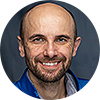
Japan – Fujita Health University
The Van Wagenen Fellowship offers a once in a lifetime opportunity to foster international connections, establish global research across continents, and to learn unique surgical skill sets and perspectives. I am honored to have been chosen for this Fellowship and am confident that it will be a key catalyst as I launch my career.
2022 – Bhuvic Patel, MD
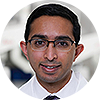
Germany – Deutsches Krebsforschungszentrum (DKFZ)/Universitätsklinikum Heidelberg
I am honored and excited to have been awarded the Van Wagenen Fellowship to pursue neuro-oncology research abroad at the prestigious German Cancer Research Center (DKFZ) in Heidelberg, Germany. During my time there I will develop expertise in genetic, epigenetic and transcriptional analysis of skull base tumors, create and foster cross-institutional and international research collaborations, and lay the foundation for my own independent scientific inquiry as an aspiring academic neurosurgeon. I am incredibly grateful for the opportunity to work with world-renowned investigators and gain unique insight from experiencing a foreign culture.
2020 – Ezequiel D. Goldschmidt, MD, PhD
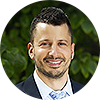
Sweden – Karolinska Instituet
I am deeply honored and grateful to be awarded the Van Wagenen Fellowship. As the 2020 Van Wagenen Fellow, I plan to obtain a broad-based foundation in the genomics, neurophysiology and axonal tracking techniques currently applied to study neuroplasticity in animals. I will apply single cell m-RNA sequencing to study a potential novel way to induce brain connectivity and better understand the gyrification process. During the fellowship period, the main focus of my research will deal with the possibility of inducing transcortical neuroplasticity in the auditory and somatosensory cortex of ferrets. I will also study, at a single cell level, the genetic basis for gyrification and functional differentiation of gyri in the mammalian brain.
I will use this opportunity to learn from world-renown neuroscientists and set the grounds for a long-term partnership with The Karolinska Institute. I look forward to spend one year in Sweden and to apply what I will learn as I start my career in the United States.
2018 – Kai Joshua Miller, MD
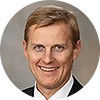
The Netherlands – University Medical Center, Utrecht
My fellowship with at UMC Utrecht in Netherlands will focus on understanding network neurophysiology for implanted closed-loop brain computer interfaces (BCIs). The team in Utrecht has developed a device for standalone BCIs using a fully implanted recording device that wirelessly interacts with a tablet. I will spend my Van Wagenen fellowship year learning scientific and surgical techniques for implanting these devices. I will also be learning techniques for electrode implantation in epilepsy patients with research in brain connectivity using paired cortical stimulation and recording in concert with 7-tesla fMRI. I will be under the mentorship of Drs. Ramsey, van Rijen, and Robe.
This is an amazing opportunity and a true honor. I hope to use this as a launching board to create the next generation of cybernetic devices for helping patients with neurological disease.
2017 – Darrin J. Lee, MD, PhD
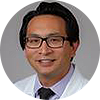
Canada – University of Toronto
Epilepsy is a chronic neurological condition that can result in abnormalities in hippocampal physiology and subsequent impaired cognition. Deep brain stimulation neuromodulation has shown promising results in alleviating cognitive dysfunction in Parkinson’s disease, traumatic brain injury, and epilepsy. The aim of my research is to better understand the mechanisms and functional connectivity underlying neuromodulation for cognition in epilepsy and neuropsychiatric disorders, and to further develop novel applications for neuromodulation.
I am deeply grateful and honored to be awarded the Van Wagenen fellowship. This fellowship will afford me the opportunity to investigate and develop novel applications for deep brain stimulation neuromodulation for cognition in epilepsy and other neuropsychiatric disorders. In addition to the educational and scientific benefits of this endeavor, this is an ideal opportunity for me to collaborate with world-renowned experts in the field and develop long-lasting partnerships for future research and clinical development.
2016 – S. Kathleen Bandt, MD
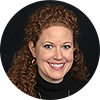
France – Aix-Marseille Universite
The William P. Van Wagenen Fellowship Selection Committee has announced S. Kathleen Bandt, MD, as the recipient of the 2017 William P. Van Wagenen Fellowship. Dr. Bandt, a Fellow in Epilepsy & Functional Neurosurgery at Yale University, will commence her Van Wagenen fellowship in July 2016.
Dr. Bandt will travel to France, where she will be hosted by Aix-Marseille University. Under the mentorships of Dr. Jean Regis and Dr. Maxime Guy, Dr. Bandt will pursue her research topic of “Functional and Structural Connectivity in Focal Epilepsy as Defined by Advanced MR Techniques.” Dr. Bandt’s goal is to better understand the physiologic perturbations in network connectivity in human disease by advancing our understanding of human cortical neurophysiology through the study of both direct electrocorticography and noninvasive advanced imaging techniques. With this work, she believes we will not only further the understanding of a variety of disease processes and the role of network connectivity in disease manifestation but also identify novel therapeutic targets for the treatment of these diseases and diversify the ability to provide care for patients beyond that which is already provided.
Dr. Bandt said: I accept this year’s Van Wagenen Fellowship with humble gratitude. I am thrilled to have the opportunity to complete my research on epilepsy network connectivity in Marseille, France and look forward to walking through the doors this opportunity opens for me during my career ahead.
2015 – Lisa Anne Feldman, MD, PhD
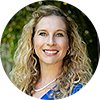
New Zealand – University of Auckland
Stereotactic radiosurgery (SRS) is an important treatment option for numerous neurosurgical diseases, including skull base tumors, metastatic brain tumors and arteriovenous malformations. Radiation necrosis (RN) is a severe complication of SRS that results in irreversible, coagulative necrosis of surrounding peri-lesional normal brain. We propose here to assess the efficacy of oxygen-therapeutic perfluorocarbon (PFC) nanoparticles as both a neuroprotective agent and a treatment for cerebral RN. We will use a murine model of late cerebral RN, and provide PFC or control at various time points before and after radiation. The progression of RN will be monitored by longitudinal magnetic resonance imaging, supported by correlative histology.
I am deeply honored to be awarded the Van Wagenen Fellowship. This award will provide me the opportunity to conduct exciting neurosurgical research abroad, while also fostering long-lasting international collaborations for future research.
2014 – Ausaf A. Bari, MD
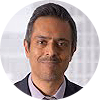
Canada – University of Toronto
The William P. Van Wagenen Fellowship allowed me to travel to the University of Toronto to work with Dr. Andres Lozano, one of the world’s experts on neuromodulation for psychiatric disorders. Dr. Lozano’s laboratory is at the forefront of this type of basic science research. This fellowship also provided me with the funding and recognition to advance our understanding of how the human brain processes reward, and how this knowledge can be used for the benefit of patients suffering from some of the most devastating disorders such as addiction.
2013 – David Ryan Ormond, MD
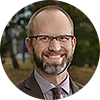
Germany – Rheinische Friedrich Wilhelms Universitat Bonn
The Institute for Reconstructive Neurobiology at the Rheinische Friedrich-Wilhelms Universität Bonn, Germany, under the directorship of Oliver Brüstle, is a research institute focused on the development of novel stem cell-based therapies for diseases of the central nervous system. The research institute remains highly interested in translational projects and works in close collaboration with a number of clinical departments at the university and elsewhere.
I have been in close contact with Professor Brüstle for several months as we have developed a research project that integrates fundamental research with experimental microsurgery related to stem cell-based studies related to neurological diseases and repair. This contact has gone beyond telephone and email conversations to a personal meeting at an international conference. We have collaborated to develop a research project beneficial to developing my own independent laboratory in the future, and that will make a significant contribution to his laboratory and to the literature. Of course, while research is the primary focus of the fellowship, I will also spend time in the Department of Neurosurgery to gain experience in international neurosurgery.
2012 – Matthew Christopher Tate, MD, PhD
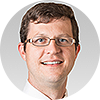
France – Hopital Guide Cliauliac/Institute of Neuroscience of Montpellier
My goals in academic neurosurgery are to establish a practice focusing on the treatment of patients with brain tumors involving eloquent areas and to establish a laboratory effort aimed at understanding the structural substrates underlying both normal human brain function as well as functional reorganization in response to brain tumor growth. As a Van Wagenen Fellow under the mentorship of Dr. Hugues Duffau in Montpellier, France, I will utilize direct cortical stimulation in awake human patients to both establish a standardized functional atlas of human brain function and to investigate the functional consequence of brain plasticity following injury.
2011 – Ben Waldau, MD, FAANS
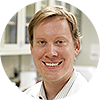
Germany – University of Dresden (Center for Regenerative Therapies)
Ben Waldau, MD, received his medical degree magna cum laude from Ruprecht-Karls University in Heidelberg, Germany. He completed his neurosurgical residency in June 2010 at Duke University in Durham, NC, and is currently an endovascular fellow at the University of Florida in Gainesville. He is the recipient of several past research grants and academic awards.
Dr. Waldau’s research focuses primarily on the treatment of neurodegenerative disorders and stroke utilizing stem cells. As a 2011 Van Wagenen Fellow, Dr. Waldau will travel to Germany to study with Professor Gerd Kempermann at the University of Dresden (Center for Regenerative Therapies). His fellowship will commence on July 1, 2011 and will be completed within the 12-month period of the grant.
2010 – Andrew W. Grande, MD, FAANS, FAHA, FACS
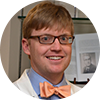
Germany Helmholtz Zentrum Munchen
Andrew W. Grande, MD, a native of St. Paul, MN, received his medical degree from the University of Minnesota in 2003. He completed his neurosurgical residency at the University of Cincinnati and Mayfield Clinic in 2009 and is currently doing a fellowship in cerebrovascular/endovascular neurosurgery under the direction of Mario Zuccarello, MD, Professor and Interim Chairman of the Department of Neurosurgery, Andrew Ringer, MD, Associate Professor and Director of Endovascular Neurosurgery, and Todd Abruzzo, MD, Assistant Professor of Neuroradiology.
Dr. Grande’s research has been in the field of neuroregeneration for the treatment of stroke. As a medical student, Dr. Grande initially studied the effects of various apoptotic compounds on stroke under the tutelage of Walter Low, PhD, Department of Neurosurgery, University of Minnesota. Later their research shifted to the use of human umbilical cord blood stem cells for the treatment of stroke.
During Dr. Grande’s residency, he studied the regenerative potential of neural stem/progenitor cells in the adult neocortex under the mentorship of Masato Nakafuku, MD, PhD, Division of Developmental Biology, Cincinnati Children’s Hospital Medical Center. For this research he received the AANS/CNS Section of Cerebrovascular Neurosurgery Research Grant and the Research Updates in Neuroscience for Neurosurgeons (RUNN) Research Award.
As the 2010 Van Wagenen Fellow, Dr. Grande will travel to Germany to study with Professor Magdalena Götz at Helmholtz Zentrum München (the German institute of stem cell research). This fellowship will enable Dr. Grande to investigate neuronal regeneration and integration in the injured adult mammalian neocortex. Utilizing a layer-specific cortical injury model, originally developed at Harvard University, Dr. Grande will assess monosynaptic connections to new neurons derived from endogenous neural stem cells using a novel labeling technique developed by Professor Götz.
The fellowship will begin in July 2010 and will be completed within one year. Following his fellowship, Dr. Grande plans to pursue an academic career in vascular and endovascular neurosurgery. He will also continue his research and hopes that his experience in Germany will form the basis to begin assessing functional effects of neuronal regeneration following stroke.
2009 – Michael C. Park, MD, PhD
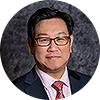
France – Assistance Publique L’ Hospital d’ Adulte de la Timone
A native of Seoul, South Korea, Michael C. Park, MD, PhD, moved to Overland Park, Kan. at age 12. He received his medical and doctorate degrees from the University of Kansas.
As a recipient of the University of Kansas MD/PhD Scholarship, Dr. Park began investigating the voluntary control of movement by the motor cortex under the direction of Paul D. Cheney, PhD. This research led to his thesis titled, “Functional organization of primary motor cortex during voluntary movement in awake rhesus macaques using stimulus and spike triggered averaging of EMG activity from 24 muscles.”
Dr. Park did his neurosurgery residency at the Warren Alpert School of Medicine at Brown University and Rhode Island Hospital. Under the direction of Gerhard M. Friehs, MD, and John P. Donoghue, PhD, he was involved in the BrainGate project, a brain-machine interface, and its surgical implantation. Under the direction of Georg Norén, MD, PhD, he worked on investigating imaging modality and its effect on the rate of hearing preservation in the treatment of vestibular schwannoma with Gamma Knife radiosurgery. In 2007, he was awarded The Melvyn M. Gelch, MD Award for Advanced Training of Neurosurgical Residents.
As the 2009 Van Wagenen Fellow, Dr. Park will travel to Marseille, France to study with Professor Jean Regis at Assistance Publique L’Hospital d’Adulte de la Timone. This fellowship will enable Dr. Park to investigate theoretical, clinical and developmental aspects of intractable epilepsy. The fellowship will begin July 1, 2009 and will be completed within one year.
Dr. Park expects that the experience and knowledge gained through the Van Wagenen Fellowship will provide invaluable guidance and skills for a future career in academic neurosurgery, with a focus on investigating novel approaches and treatment of neurological disorders.
2008 – Samuel H. Cheshier, MD, PhD, FAANS
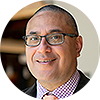
Sweden – Lund University
Samuel H. Cheshier, MD, PhD, began his academic career as an undergraduate at the University of California, Los Angeles. It was there that he became intrigued with blood stem cells as the source for immune cells. Although his long-term goal was to develop stem cell based therapies for CNS diseases, he realized that the immunology and hematology communities were highly advanced in their understanding of stem cells and the application of these cells in the clinical setting. Indeed they have made cell based therapies a reality with the advent of bone marrow transplantation. Thus upon matriculating to Stanford Medical School, he decided to study stem cell biology with the person who purified the hematopoetic stem cell, Dr. Irving Weissman. As a graduate student, he ascertained the kinetics of the blood stem cell proliferation in vivo, which served as the basis of modeling the stochastic nature of steady state hematopoietic stem cell proliferation. He continued his training as a resident and postdoctoral fellow at Stanford, where he continued his work in the laboratories of Dr. Weissman and Dr. Roeland Nusse. He studied both normal and cancer-stem cells in the brain and identified the role of an important factor (Wnt protein) in the life cycle of these cells. As a Van Wagenen fellow he will continue his studies of stem cells with one of the fathers of cellular transplantation, Dr. Anders Bjorklund.
Understanding the role of signaling pathways in fate decisions of stem cells can allow clinicians and scientists to manipulate these cells for transplantation therapies. However, for the purpose of cell transplantation, it is problematic to change stem cells by genetic means because such manipulations are usually irreversible and may generate tumor cells. It is therefore a major goal within the field of tissue engineering to use extra-cellular growth factors to regulate stem cells. In light of much evidence implicating the Wnt signaling pathway as a key regulatory mechanism in many developmental decisions, we intend to utilize purified Wnt proteins as a means of manipulating neural stem cells both in vivo and in vitro. His preliminary experiments indicate that Wnt proteins are indeed able to guide neural stem cell behavior and can be utilized as therapeutics for pathologies such as Parkinson’s disease. He will utilize purified Wnt proteins to expand the numbers of CNS stem cells and then promote their differentiation into dopminergic neurons. These cells will be transplanted into mice in which a Parkinson’s like lesion has been created. He will then study the incorporation of these cells within the substantia nigra and determine if functional outcomes in the mice can be improved with Wnt treated CNS stem cells. Ultimately, these types of experiments will serve as the foundation of cell transplantation therapies for the CNS, which will surely become a treatment option for patients in the not too distant future.
As the 2008 Van Wagenen Fellow, Dr. Cheshier will travel to Sweden to continue research in central nervous stem cell based regeneration with Dr. Anders Bjorklund at Lund University. The Van Wagenen Fellowship will provide Dr. Cheshier with a unique research opportunity. Upon his return to the United States, he plans to be amongst the pioneers of the next phase of cell-based therapies for the CNS.
2007 – James C. Miller, MD, FAANS
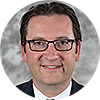
Germany University of Tubingen
James C. Miller was raised in Moravia, Iowa. He attended the University of Iowa, obtaining a double major in Biochemistry and History graduating with honors in 1996. As an undergraduate, he worked in the laboratory of Dr. Kevin Campbell, a leading muscular dystrophy researcher. He then attended medical school at the University of Iowa and developed interest in neurosurgery and performed research with Dr. Vincent Traynelis.
During neurosurgery residency at Indiana University, Dr. Miller’s research interest was focused on examining immunological interactions with gliomas. During his research year at IU, he carried out studies in the laboratory of Dr. Randy Brutkiewicz examining the interaction and inhibition of natural killer T-cells by glioblastoma cells.
As the 2007 Van Wagenen Fellow, Dr. Miller will travel to Germany to continue research in neuro-oncology with Dr. Michael Weller at the University of Tubingen. He will study anti-tumor immunity involving CD70/CD27 interactions which have been shown to play multiple roles towards inducing tumor rejections. He will also be evaluating the antagonism of the immuunosuppressive molecule transforming growth factor (TFG)-B with the agens SD-208.
The Van Wagenen Fellowship will provide Dr. Miller with a unique research opportunity. He plans to continue neuro-oncology research and hopes to one day translate his research into a future clinical trial of immunotherapy for malignant gliomas.
Understanding the role of signaling pathways in fate decisions of stem cells can allow clinicians and scientists to manipulate these cells for transplantation therapies. However, for the purpose of cell transplantation, it is problematic to change stem cells by genetic means because such manipulations are usually irreversible and may generate tumor cells. It is therefore a major goal within the field of tissue engineering to use extra-cellular growth factors to regulate stem cells. In light of much evidence implicating the Wnt signaling pathway as a key regulatory mechanism in many developmental decisions, we intend to utilize purified Wnt proteins as a means of manipulating neural stem cells both in vivo and in vitro. His preliminary experiments indicate that Wnt proteins are indeed able to guide neural stem cell behavior and can be utilized as therapeutics for pathologies such as Parkinson’s disease. He will utilize purified Wnt proteins to expand the numbers of CNS stem cells and then promote their differentiation into dopminergic neurons. These cells will be transplanted into mice in which a Parkinson’s like lesion has been created. He will then study the incorporation of these cells within the substantia nigra and determine if functional outcomes in the mice can be improved with Wnt treated CNS stem cells. Ultimately, these types of experiments will serve as the foundation of cell transplantation therapies for the CNS, which will surely become a treatment option for patients in the not too distant future.
As the 2008 Van Wagenen Fellow, Dr. Cheshier will travel to Sweden to continue research in central nervous stem cell based regeneration with Dr. Anders Bjorklund at Lund University. The Van Wagenen Fellowship will provide Dr. Cheshier with a unique research opportunity. Upon his return to the United States, he plans to be amongst the pioneers of the next phase of cell-based therapies for the CNS.
2006 – Uzma Samadani, MD, PhD, FAANS
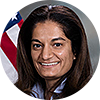
Germany – University of Goettingen
Uzma Samadani was born in Wimbledon, England and moved to Beaver Dam, Wisconsin at the age of two. She matriculated into the University Wisconsin-Madison’s Medical Scholars Program after high school. While in Madison, she had her first exposure to research, developing a new model for cornea transplantation in mice in the laboratory of ophthalmologist John Chandler. For this work, she won the Academic Award for Excellence in science research, as one of the top two undergraduate researchers in the College of Letters and Sciences. She was also awarded a research grant from the Center for Biology Education for work performed in the research lab of transplant surgeon Hans Sollinger. After three years at the University of Wisconsin, Uzma graduated Phi Beta Kappa with majors in Molecular Biology and English Literature.
Uzma then joined the MD/PhD program at the University of Illinois where she worked with molecular biologist Robert Costa on elucidation of mechanisms of cell-type specific transcription. She characterized elements regulating transcription of the genes transthyretin (TTR) and hepatocyte nuclear factor (HNF) three beta. HNF-3 beta (now called FOXA2) was subsequently found to regulate sonic hedgehog. Using the yeast one-hybrid system, Uzma cloned and characterized a novel human transcription factor gene called HNF-6, which encodes a protein that regulates gene expression of both TTR and HNF-3 beta via DNA binding sites that selectively bind either HNF-3 beta, HNF-6, or both proteins. This work led to an understanding of cell type specific growth regulation that has ultimate implications for generation of specific cell types from embryonic or undifferentiated precursor stem cells. During the course of her graduate studies, Uzma published six peer-reviewed papers and won three awards for oral presentations. She was awarded two fellowships including the Charlotte Webster Barnes, Helen T. Barnes and Broda O. Barnes Research Fellowship for Molecular Medicine.
Upon completion of medical school, Uzma undertook internship and neurosurgery residency at the Hospital of the University of Pennsylvania. In conjunction with epileptologist Peter Crino she has investigated the differences in gene expression between neurons and astrocytes microdissected from ganglioglioma and its adjacent cortex as a mechanism for understanding how these tumors cause epilepsy. She has also completed several clinical research projects on deep brain stimulation and stereotactic neurosurgery with functional neurosurgeon Gordon Baltuch and brain tumor surgeon Kevin Judy. With Sean Grady and Eric Zager she has investigated the consequences of intraoperative intracranial hypotension.
She intends to use her Van Wagenen Fellowship for study in Goettingen, Germany with Dr. V. Rohde elucidating mechanisms by which cellular and molecular therapy can be utilized to rescue function after cerebral injury. She will investigate techniques for manipulation of cellular function and fate following hematoma evacuation in an animal model. In the long term, she is interested in developing methods for modulation of gene expression to drive cellular differentiation, which has implications for recovery from ischemic stroke, trauma and neurodegenerative diseases. Uzma’s clinical interests range from stereotactic and functional neurosurgery to minimally invasive management of brain tumors and aneurysms. She intends to expand this training by exposure to minimally invasive and image guided techniques in Germany.
2006 – Yu-Hung Kuo, MD, PhD, FAANS
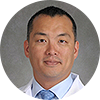
Australia – Fliders Medical Centre
Yu-Hung Kuo, MD, PhD, is one of the recipients of the 2006 William P. Van Wagenen Felowship. He obtained his undergraduate degree in the biological sciences at the California Institute of Technology. After completing the first year of medical school at the University of Iowa, Dr. Kuo transferred to Columbia University, P&S where he joined the MD/PhD program. As a student of the Integrated Program in Cellular, Molecular, and Biophysical Studies, the isolation and characterization of a novel transynaptic regulatory protein led to his doctoral dissertation, “The role of the N-terminus in neuregulin function.”
After completion of medical school in 1999, he joined the neurosurgery residency at the Weill Medical College of Cornell. During residency, Dr. Kuo continued his scientific pursuits under Dr. Michael Kaplitt where he studied the mechanisms governing tissue tropism of the viral vector AAV. These studies have increased our understanding of how AAV determines its targets and has permitted for design of de novo vectors with increased selectivity and efficacy. This research has been presented in national meetings of the neurosurgical, neuroscience, and gene therapy communities. Dr. Kuo was also involved with the Phase I studies implanting AAV mediated genetic therapy to the CNS for treatment of Parkinson’s disease run at Cornell by Dr. Kaplitt.
Dr. Kuo has developed an interest in neurooncology during his residency and will use the Van Wagenen Fellowship to marry his interests in oncology with gene therapy. Cellular responses play a crucial role in determining susceptibility to exogenous insults. While surgical therapy plays an important role in treatment of neuro-oncologic disease, adjuvant therapy, in particular radiation therapy, has a central role. In order to enhance the efficacy of radiotherapy and protect surrounding structures, it is important to identify those genes that respond to radiation damage. The aim of this project is to identify genes whose expression is either upregulated or downregulated by exposure to radiation. Isolation of the DNA elements that control expression of these genes will permit for design of gene therapy vectors whose transgene expression can be regulated in response to radiation therapy to increase its efficacy while diminishing its side effects. These studies will be done with Dr. Brian Brophy, Department of Neurosurgery at Adelaide Hospital in Adelaide, Australia. Dr. Kuo hopes that advances from these studies will lead to techniques to increase the radiosensitivity of tumors in the CNS while providing neuroprotection to normal cells.
2005 – Devin K. Binder, MD, PhD, FAANS
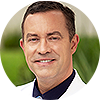
Germany – University of Bonn Medical Center
When asked how the Van Wagenen experience made a difference personally and/or in his neurosurgical career, Dr. Binder responded: Currently in the middle of the fellowship, I already recognize the important professional benefits. I am learning epilepsy surgery and other approaches to neurosurgical problems all in the setting of the best neurosurgery program in Germany. Certainly, I am exposed to a wealth of clinical material. In addition, I am working in the laboratory with a world-class physiologist and other colleagues to push forward the understanding of the role of glial cells in epilepsy.
When asked what he would say to future doctors considering applying for the Van Wagenen Fellowship, Dr. Binder responded: It is worth having a clear idea of exactly what one wants to get out of the fellowship from a professional standpoint, and preferably to do it in a country in which one is interested from a personal/cultural standpoint. The perspective on neurosurgical care and culture and society in general is absolutely without compare.
Devin K. Binder grew up in Berkeley, California. Early on, he thought he might become a musician, playing the violin and piano. He went to Harvard College, graduating with a degree in Biological Anthropology in 1991. As an undergraduate, he worked in the laboratory of Dr. J. Allan Hobson at Harvard Medical School, culminating in the summa cum laude thesis “Serotonin and behavioral state.” He then enrolled in the MD/PhD program at Duke University. Working in the laboratory of Dr. James O. McNamara, a leading epilepsy researcher, he combined molecular biology with immunohistochemistry and in vivo electrophysiology, resulting in the Ph.D. dissertation “The functional role of neurotrophins in the kindling model of epilepsy.” At Duke, contact with Dr. Robert Wilkins, Dr. Allan Friedman and Dr. Bermans Iskandar kindled a lasting interest in clinical neurosurgery.
During neurosurgery residency at UCSF (1999-present), Binder has developed a diversity of clinical and research interests. Among other projects, with Dr. Nicholas Barbaro, he examined the epidemiology of auras in the series of patients undergoing temporal lobectomy at UCSF. With Dr. Philip Starr, he explored the epidemiology of hemorrhagic complications of deep brain stimulation surgery for movement disorders. With Dr. Helen Scharfman (at Columbia University), he co-authored multiple articles on brain-derived neurotrophic factor (BDNF) and its role in epilepsy, and together they co-edited the book “Recent advances in epilepsy research.” In laboratory work during his research year at UCSF, Binder has carried out studies on the role of nonsynaptic mechanisms in epileptogenesis. In the laboratory of Dr. Geoffrey Manley, he studied the epilepsy phenotype of animals deficient in the glial water channel aquaporin-4. With Dr. Alan Verkman (UCSF Physiology), Binder developed an entirely new fluorescence method for measuring brain extracellular space in vivo and has applied it to studies of cytotoxic and vasogenic edema, seizures, and tumor biology.
The 2005 Van Wagenen Fellowship affords Binder a unique opportunity to further his academic training in the fields of epilepsy surgery and epilepsy research. He will be pursuing advanced training with Dr. Johannes Schramm at the University of Bonn. Dr. Schramm and his colleagues have established a world-class epilepsy research and treatment center in Bonn, with prodigious academic output in both clinical and basic epilepsy research. Binder will work directly with Dr. Schramm to learn surgical techniques and approaches to epilepsy treatment. Binder also aims to gain experience in translational approaches to epilepsy research. Dr. Schramm and his colleagues Christian Elger (neurologist), Heinz Beck (neuroscientist), and Christian Steinhäuser (neuroscientist) have employed a variety of state-of-the-art techniques to advance the study of epilepsy tissue. During his fellowship, Binder will learn these techniques in order to expand his prior knowledge of cellular and molecular neurobiology in applying it to human tissue directly. Binder’s other main goal for the fellowship is to understand how such a productive epilepsy team is organized.
With the unique training afforded by the Van Wagenen Fellowship, Binder hopes to bring tangible benefit home to the United States in contributing to and expanding the expertise of an epilepsy and functional neurosurgery program at a major U.S. university.
2004 – Stephen M. Russell, MD, FAANS
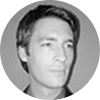
Germany – Ludwig Maximilians, University of Munich
When asked how the Van Wagenen experience made a difference personally and/or in his neurosurgical career, Dr. Russell responded: Established a number of European collaborations and jump-started my academic career, laboratory experience, NREF grant, book on peripheral nerve injury and much more.
When asked what he would say to future doctors considering applying for the Van Wagenen Fellowship, Dr. Russell responded: Outstanding cultural and professional experience without equal. All graduating residents are encouraged to apply. This will be the most memorable year of their academic careers.
Stephen M. Russell, MD, is the recipient of the 2004 William P. Van Wagenen Fellowship. In 1994, Dr. Russell graduated summa cum laude from Rensselaer Polytechnic Institute after three years of study. He then finished medical school at New York University in 1998 where he was elected to the Alpha Omega Alpha honor society. During undergraduate and medical school, he worked for a total of 15 months in four different research laboratories. His interest in neurological surgery developed through his experiences as a neuroanatomy instructor.
Dr. Russell will complete his neurological residency training at New York University under the supervision of Dr. Patrick Kelly in July 2004. During residency, Dr. Russell developed an interest in clinical research, authoring 17 manuscripts in peer-reviewed journals, 6 book chapters, and 8 oral presentations at national neurosurgical meetings. Scoring in the 98% percentile on the ABNS written examination in his first year of residency, and completing a fellowship in interventional neuroradiology were other residency highlights. Dr. Russell’s neurosurgical interests include pathological anatomy, optimization of resident and student education, and microsurgical technique.
As the 2004 Van Wagenen fellow, Dr. Russell will travel to Munich, Germany, where he will study the molecular pathophysiology of viral infection and reactivation in peripheral and cranial nerve sensory ganglia in the laboratory of Professor Michael Strupp at the Ludwig-Maximilians University’s Klinikum Grosshadern. Upon completion of the fellowship, Dr. Russell plans to continue these laboratory investigations in close collaboration with Professor Strupp, and with other established neuro-virologists at his home institution. As a complement to these research efforts, both during and following his laboratory training in Munich, Dr. Russell will study the management of peripheral nerve pathology under the supervision of Dr. David Kline of Louisiana State University.
2003 – Odette Althea Harris, MD, MPH, FAANS
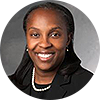
Jamaica – University Hospital of the West Indies
When asked how the Van Wagenen experience made a difference personally and/or in her neurosurgical career, Dr. Harris responded: It has served as a framework for ongoing research in the area of trauma epidemiology – an invaluable opportunity.
When asked what she would say to future doctors considering applying for the Van Wagenen fellowships, Dr. Harris responded: This is a fantastic opportunity to gain research experience and exposure in an environment separate from residency. I highly recommend it!
Odette A. Harris, MD is the recipient of the 2003 William P. Van Wagenen Fellowship. A 1991 graduate of Dartmouth College, Dr. Harris was the first undergraduate to receive a Howard Hughes Medical Institute Research Grant. This award afforded her the opportunity to conduct independent research examining the effects of local anesthetics on neuronal excitability.
Dr. Harris is a graduate of Stanford University’s School of Medicine and is expected to complete her residency at the Stanford University Medical Center this June. As a medical student, her interest in neuroscience led her to the laboratory of Dr. Eric Shooter. Dr. Harris was awarded a Stanford University Medical Scholars Research Grant and worked to merge her clinical interests in neurosurgery with academic interests in neuropathology and neurobiology.
While in residency, Dr. Harris has directed her investigative efforts to the fields of neurotrauma and outcome analysis, using epidemiology as a tool in assessing outcomes, and further, in addressing resource utilization.
Dr. Harris will use the Van Wagenen Fellowship to evaluate the management of traumatic brain injury in the developing world (Jamaica) and attempt to identify the most significant factors affecting functional outcome in order to develop protocols that are clinically effective and provide the best utilization of available resources. She plans to study with Dr. Ivor Crandon, Professor and Chief of Neurosurgery at the University Hospital of the West Indies and the only Consultant Neurosurgeon at the University. After completing her work in Jamaica, Dr. Harris plans to pursue an academic career in neurosurgery with a dedicated focus on neurotrauma.
Dr. Harris is very involved in community efforts of education and empowerment. As co-founder of THINKFIRST Jamaica, she regularly travels to the island to give presentations and continue to work with the neurosurgical community, government, health and education officials to keep the program funded. She recently published a manuscript looking at data regarding the use of hypothermia and its effectiveness as a management strategy in traumatic brain injury (Archives of Neurology. 2002;59:1077-1083).
2002 – Saadi Ghatan, MD
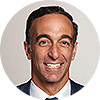
England – Institute of Child/Health/Great Ormond Street Hospital
When asked how the Van Wagenen experience made a difference personally and/or in his neurosurgical career, Dr. Ghatan responded: The Van Wagenen Fellowship gave me scientific and clinical perspective that was invaluable. I studied neural development in London, and have used the lab techniques learned there to begin my lab efforts at Columbia. This has led to studies in neural tube defects and pediatric brain tumors. Most importantly, I’ve made lasting professional contacts and friendships from my year abroad.
When asked what he would say to future doctors considering applying for the Van Wagenen Fellowship, Dr. Ghatan responded: The opportunity to study abroad at the end of residency allows you to put everything you’ve learned in the United States into a global perspective. You will come back refreshed and invigorated with new ideas at the start of your career.
Saadi Ghatan, MD, is the recipient of the 2002 William P. Van Wagenen Fellowship. He is a recent graduate of residency training at the University of Washington in Seattle, and is in the last year of his clinical training as a Fellow in Pediatric Neurosurgery. Dr. Ghatan graduated cum laude in English from Princeton University in 1987, and received a medical degree with honors from the University of Washington in 1993. He completed surgical training in 1994, and developed an interest in pediatric neurosurgery during residency, with a special focus on disorders of the pediatric spine.
Dr. Ghatan will use the Van Wagenen Fellowship to apply his knowledge of programmed cell death to the study of neural development. He plans to study under Professor Andrew J. Copp, a developmental neurobiologist and leader in neural tube defect research at the Institute of Child Health/Great Ormond Street Hospital in London. His laboratory has gained world recognition for its work in the basic science of spinal dysraphism.
After completing his work in London, Dr. Ghatan plans to further his research as a primary investigator. He has accepted a position as Assistant Professor of Neurosurgery at Children’s Hospital and the University of Washington in Seattle, to commence at the end of his training. In addition, he hopes to eventually build an academic practice specializing in disorders of the pediatric spine and spinal cord.
Dr. Ghatan has written extensively about his work, having authored more than 20 articles, three book chapters and abstracts. One publication resulting from Dr. Ghatan’s work was published in The Journal of Cell Biology (150:335-347, 2000), demonstrating bax translocation in nitric oxide-induced apoptosis in neurons.
2001 – Shekar N. Kurpad, MD, PhD, FAANS
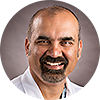
Sweden – Karolinska Institute
Shekar N. Kurpad, MD, the recipient of the 2001 William P. Van Wagenen Fellowship is the Chief Resident of the Department of Neurosurgery at Case Western Reserve University. Dr. Kurpad earned an undergraduate degree from Bangalore University in India, a medical degree from Bangalore Medical College and a PhD in pathology from Duke University. His research at Duke on the molecular and cell biology of gliomas was published in first-rate peer-reviewed journals.
His research project for the Van Wagenen Fellowship is titled “The use of neural stem cells transfected with mutant alkylguanine alkyltransferase (AGAT) gene as a mechanism to protect CNS tissue and offer a method of selective repopulation in the CNS.” Dr. Kurpad’s interest is in using stem cell transplants to protect and restore cerebral circuitry after high-dose intraarterial chemotherapy. To test it in a rodent model will require him to learn how to evaluate cerebral function in various injury models.
Dr. Kurpad will use the Van Wagenen Fellowship to study under Jonas Frisen, MD, Urban Lendahl, MD, and Lars Olson, MD, at the Karolinska Institute in Stockholm, Sweden. The laboratory was one of the first to identify the existence of neural stem cells in both fetal and adult rodents. The doctors were pioneers in isolating these cells and perfecting the method to grow them in culture. The laboratory was instrumental in the transplantation of these cells in vivo in mice and rats to enable the delineation of the fate of transplanted neural stem cells in the brains of fetal and adult animals.
After completing his work in Sweden, Dr. Kurpad plans to return to Case Western Reserve University as a faculty member in the Department of Neurosurgery. He intends to practice general neurosurgery and to set up a research laboratory to conduct translational studies for treating brain tumors. He plans to work with Stan Gerson, MD, in using a proposed neural stem cell transplantation model in the study of therapeutic approaches to gliomas, Parkinson’s disease, stroke, cerebral palsy and other neurolopathologic processes.
Dr. Kurpad has written extensively about his work, having authored more than 30 articles, book chapters and abstracts.
2000 – P. Charles Garell, MD, FAANS
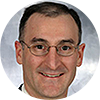
France – Centre Hospitalier Universitaire
When asked how the Van Wagenen experience made a difference personally and/or in his neurosurgical career, Dr. Garell responded: Spending an extended period of time immersed in another culture has broadened my outlook both personally and professionally. Too often, we find ourselves trending toward the “standard of care,” without appreciating that commonly there is little objective evidence to support one local practice over another. Thus, by learning a different set of “standards,” one can better appreciate the range of treatment options available and develop more encompassing theories to advance our mission of patient care, teaching and research.
When asked what he would say to future doctors considering applying for the Van Wagenen Fellowship, Dr. Garell responded: This fellowship offers many advantages for those interested in academic neurosurgery. It requires considerable planning, both for the initial application and subsequent execution, but for those who find happiness in intellectual stimulations, in exploring new ideas, and in teaching others; the planning and organization is a continuous part of our career and can be a rewarding experience in itself.
The Van Wagenen Fellowship has allowed me a period of study at an international center of excellence at a time that is critical for the development of my academic career.
I spent nine months at the Centre Hospitalier Universitaire in Grenoble, France under the direction of Professor Alim-Louis Benabid, MD, PhD. This was truly a rewarding opportunity and a time I will cherish throughout my life. After receiving excellent general neurosurgical and investigative training at the University of Iowa, I utilized the Van Wagenen Fellowship to pursue more focused training in functional neurosurgery and translational research.
The opportunity to spend a prolonged period of time at a world-class center has both direct and indirect advantages. Learning the “nuts and bolts” of deep brain stimulation and patient selection enhances my day-to-day clinical practice; additionally, learning the nuances of a major movement disorder program and knowing the people who are currently making contributions to this field has long-term advantages.
On a more personal level, the people I have met, both French and other visiting scholars, will not only be life-long colleagues, but we will have forged a friendship grounded in a shared experience.
1999 – Theodore H. Schwartz, MD, FAANS
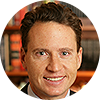
Germany – Tobias Bonheoffer Max-Planck Institute for Neurobiology
When asked how the Van Wagenen experience made a difference personally and/or in his neurosurgical career, Dr. Schwartz responded: I currently run a basic science laboratory funded with an RO1, an R21 and a K08 from NINDS. The laboratory employs an assistant professor, two post-doctoral fellows and a technician. Without the data and experience obtained during my Van Wagenen Fellowship, I would not have been able to obtain independent funding and begin an independent laboratory
When asked what he would say to future doctors considering applying for the Van Wagenen Fellowship, Dr. Schwartz responded: Make sure that you find a unique opportunity abroad that will provide you with a worthwhile experience.
My Van Wagenen Fellowship was spent in Munich, Germany at the Max-Planck Institute of Neurobiology. Since my first son Jonathan was born on June 29th, I delayed my departure until the second week in July. My wife and son joined me in September and we truly had a wonderful time.
From a professional perspective, the fellowship was by far the most productive academic period of my life. I worked intensely during the weekdays performing in vivo optical imaging experiments in an epileptic ferret preparation, which had never been used in this laboratory. The strong infrastructure of the lab and support of the faculty allowed me to be highly efficient and productive. The work I did during that six-month period has resulted in a publication in Nature Medicine and a second manuscript is being submitted to the Journal of Neuroscience. The results formed the preliminary basis for subsequent grants and my ability to obtain NIH and private foundation support. I am currently starting my own laboratory at New York Hospital-Cornell Medical School, which would not have been possible without the experience and time provided by the Van Wagenen Fellowship.
I am still in touch with several of the people met in the laboratory, and they have remained collaborators and friends. I recommend the Fellowship highly to anyone with a specialized interest that can be pursued abroad.
1998 – Kamal Thapar, MD, FAANS, FACS
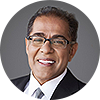
Germany – University of Erlagen-Nurnberg
When asked how the Van Wagenen experience made a difference personally and/or in his neurosurgical career, Dr. Thapar responded: This fellowship has had a profound impact on my professional career, the extent of which I seem to better appreciate with each passing year. The opportunity to study in the company of master surgeons in Germany in the fields of pituitary surgery, epilepsy surgeon, and intraoperative navigation, not only provided technical skills that I use on a daily basis, but did so in the context of an enriching cultural experience for both my family and me. With the benefits of the experience being as much cultural and philosophical as they were scholarly and neurosurgical, I regard the Van Wagenen Fellowship as one of the defining and most precious moments in my professional career.
When asked what he would say to future doctors considering applying for the Van Wagenen Fellowship, Dr. Thapar responded: There are few fellowship opportunities with the prestige, practicality, and power to provide the young neurosurgeon direct access to study with the greatest minds in his/her area of interest anywhere in the world – The Van Wagenen Fellowship is one of these. This fellowship opportunity will allow you to identify, design, and execute a scholarly and cultural experience that will be an extraordinary beginning to your professional life, and one that you will cherish for many years thereafter.
1997 – Zelma HT Kiss, MD, PhD
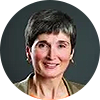
France – Centre Hospitalier Universitaire de Grenoble
When asked how the Van Wagenen experience made a difference personally and/or in her neurosurgical career, Dr. Kiss responded: The Van Wagenen Fellowship was a wonderful experience; essential to having an international experience while in training – interaction with trainees from other places in the world, different health care approaches and research styles is invaluable. It provided an opportunity to work with an international star mentor, in a very specialized field. The experience defined my research path.
When asked what she would say to future doctors considering applying for the Van Wagenen Fellowship, Dr. Kiss responded: Excellent opportunity, prestigious and allows you access to some of the best labs in the world. You must be committed to a research career to do it, but if so, it is tremendously beneficial.
1996 – Howard L. Weiner, MD, FAANS
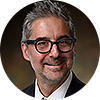
France – Institut d’Embryologie Cellulaire et Moleculaire
When asked how the Van Wagenen experience made a difference personally and/or in his neurosurgical career, Dr. Weiner responded: The Van Wagenen Fellowship was an absolutely pivotal experience in my career, as well as on a personal level. It was a unique opportunity to explore a compelling question in developmental neurobiology on a very high level, in a setting that fostered creativity, without any of the distractions one normally encounters in a busy career. I was privileged to befriend an amazing and talented group of scientists, with whom I remain in contact. This work directly fostered my current research which is funded by a NIH grant. For my family, this was an adventure we will never forget. Imagine arriving in Paris in the middle of winter, with newborn twins, barely speaking the language.
When asked what he would say to future doctors considering applying for the Van Wagenen Fellowship, Dr. Weiner responded: Do not miss this opportunity. It will not present itself again.
This has been an incredible experience that has greatly enhanced my understanding of fundamental aspects of CNS development, and will provide a strong basis on which to continue my work. The novel techniques and approaches learned during this Fellowship will be integrated into my research upon my return to New York University. I am investigating early stages of brain development in the laboratory of Nicole Le Douarin, Director of the Institut d’embryologie cellulaire et moleculaire du CNRS et du College de France, in Paris.
Several years ago, Professor Le Douarin originated an avian embryonic neural chimera model to study brain development, which enables one to trace the migration and fate of embryonic neuroepithelial cells during the entire period of their developmental history. This quail-chick chimera entails microsurgically grafting quail embryonic neural tube into that of a chick embryo, on embryonic day one. Histologically, quail and chick cells can subsequently be recognized due to the characteristic appearance of their nuclei. I am determining whether regions of the brain are already committed, at this early stage, to their developmental fate, or whether local environmental molecular cues play a more significant role. Segmentation occurs in the developing hindbrain, where a series of constrictions and bulges, called rhombomeres, appear. I am performing microsurgical heterotopic brain transplantation experiments of the presumptive territory of defined rhombomeres, and then determining whether the phenotypic anatomic fate of the grafted tissue is modified by transplantation. I am also determining whether the expression of specific segmentally-restricted genes, such as Hox genes, correlates with this switch in anatomic identity, or whether there are already developmental constraints present in this embryonic neural tissue. The potential applications of this technique in the study of brain development are almost limitless, and therefore, it is an extremely powerful tool in developmental neurobiology.
1995 – Timothy C. Ryken, MD, FAANS
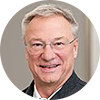
United Kingdom – Cambridge Centre for Brain Repair
Dr. Ryken is an Iowa native. He attended Iowa State University majoring in biochemistry where he received highest honors and was elected to Phi Beta Kappa. He completed medical school at the University of Iowa in 1984 with election to AOA. He worked as a neurochemistry research assistant throughout that time and following medical school entered neurosurgical training, completing residency at the University of Iowa in 1995.
He received one of the highest honors available to neurosurgical residents, being named the AANS Van Wagenen Fellow for 1995 and was awarded a year of study at the University of Cambridge where he developed techniques for genetic modification of central nervous system cells. He joined the faculty at the State University of New York, Department of Neurosurgery in Syracuse in 1996. He was named the first recipient of Robert and Molly King Endowed Chair in Neuroscience for research in brain tumor treatment. He subsequently returned to the University of Iowa, Division of Neurosurgery as assistant professor in 1998 to further develop therapies for central nervous system neoplasia. Since returning to the University of Iowa, his focus has been on development of a multi-disciplinary clinic for brain tumor treatment, the initiation of the Molecular Neurosurgical laboratory to study the genetic alterations in glioma, as well as developmental neuro-biology, and has pursued an interest in computer- assisted image-guided surgery and radiosurgery.
In addition to his interest in central nervous system tumors, he has been extensively involved in spinal surgery. He received the Mayfield Award of the Joint Section on Spine and Disorders of the Peripheral Nerves in 1994 and has numerous publications in spinal biomechanical studies. He has served as Scientific Program chair, and Annual Meeting chair of the Joint Spine Section Meeting. He co-authored the widely quoted AANS/CNS-sponsored publication on Guidelines for the Management of Acute Spine and Spinal Cord Injuries. He is also involved nationally with the AANS/CNS Joint Section on Tumors, the Society for Neuro-oncology, the Society for Neuroscience and the American Association of Cancer Research. He has been supportive in University Committees as well, serving on the Faculty Practice Plan Management Committee, the Utilization Review Committee, the Department of Surgery Computer and Clinics Committees, the College of Medicine Research Committee, the Genetic Vector Advisory Committee and is a member of the Institutional Review Board. He provides faculty support for the patient oriented Brain Tumor Support Group conducted here at the University of Iowa.
My fellowship year was spent studying the genetic modification of cells for applications to central nervous system degenerative disease and neoplasia. The year spent as the Van Wagenen Fellow was the single most rewarding year I can recall for both myself and my family. The opportunity to live and study abroad, concentrating on a single topic, is one that will not come again. I would return for a second year of similar study and would recommend the experience whole-heartedly.
1994 – Ivar M. Mendez, MD, PhD, FAANS
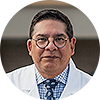
Sweden – University of Lund
When asked how the Van Wagenen experience made a difference personally and/or in his neurosurgical career, Dr. Mendez responded: The support of the Van Wagenen Fellowship to pursue basic research in neurotransplantation in brain repair in Sweden was critically important for the development of an academic neurosurgical career. This period of dedicated time in basic science research prepared the pathway for my career as a clinician scientist. The experience in Sweden was invaluable for putting together a program in cell-restoration strategies to repair the brain using progenitor cells.
When asked what he would say to future doctors considering applying for the Van Wagenen Fellowship, Dr. Mendez responded: I feel that the Van Wagenen Fellowship provides individuals who are considering an academic career in neurosurgery the unique opportunity to train with world leaders of clinical and basic neurosciences and has been the launching pad for many brilliant academic neurosurgical careers in North America.
The Van Wagenen Fellowship gave me the opportunity to consolidate my research training in neural transplantation. This period of training supported by the Fellowship has been a crucial step in the development of my career as an academic neurosurgeon.
1993 – Mark E. Linskey, MD, FAANS
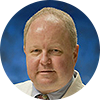
England – Ludwig Institute for Cancer Research
When asked how the Van Wagenen experience made a difference personally and/or in his neurosurgical career, Dr. Linskey responded: I performed my Van Wagenen Fellowship with Mark Noble, PhD, (one of the foremost developmental glial biologists) at the Ludwig Institute for Cancer Research, at University College, London, England. I studied the first primary human GBM cell line confirmed to be of human O-2A origin and applied developmental glial biology principles to studying glioma cell biology in 2-D culture, 3-D culture and with normal CNS co-culture conditions. This experience rapidly provided me with a large basic science neuro-oncology research experience including experimental techniques, technique trouble-shooting, experimental design, and critical thinking along the scientific method. I have continued my interest in neuro-oncology from both the clinical, clinical research and basic science research lines as co-director of the Neuro-Oncology Program at the University of Arkansas for Medical Sciences (1998-2004), as well as the Chao Family Comprehensive Cancer Center at the University of California, Irvine (2004-present).
When asked what he would say to future doctors considering applying for the Van Wagenen Fellowship, Dr. Linskey responded: This is an unmatched opportunity to develop the academic skills and networking contacts necessary to jump start an academic career. It is particularly useful as a means of exploring new lines of investigation, obtaining preliminary results, and developing the mentoring and collaboration contacts necessary to transition to an NIH K-award as a junior faculty member if your faculty destination is already known at the time of acceptance. Particularly given the worsening constraints on protected research time during residency due to ACGME work hour restrictions and resultant clinical cross coverage requirements, if academic medicine is your goal, this is the ideal means to launch your career.
It was both an honor and a pleasure to represent the American Association of Neurological Surgeons as the Van Wagenen Fellow. I spent a very productive year doing pure basic science research applying developmental glial biology to neuro-oncology in tissue culture at the Ludwig Institute for Cancer Research in London in the laboratory of Dr. Mark Noble. It was a marvelous opportunity to meet and work with some of the most prominent glial biologists in the world. The lion’s share of the study of normal glial biology is being performed in about a half-dozen laboratories in the world, and the majority of these are located in London. I learned a tremendous amount about glial biology and established invaluable relationships with promising bright young basic scientists who are anxious to interact and collaborate with surgical neuro-oncologists. Without the Van Wagenen Fellowship Program, I wouldn’t have had this wonderful and memorable experience.
1992 – Mary Louise Hlavin, MD, FAANS
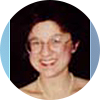
England – Cambridge University
I can’t speak highly enough of the Van Wagenen Fellowship program and the opportunity it affords young neurosurgeons. For me, it was one of the most rewarding years of my life. It provided not only the opportunity to do exciting research in the company of terrific scientists, but it also enabled me to work with a great neurosurgeon and mentor, Mr. Alan Crockard. The opportunity to spend time with him was well worth the 5:00 a.m. bus trip to make it to the operating theatre by 7:00 a.m.
During my year in Cambridge, I established friendships that reach far beyond the realm of collaborative efforts. Immersing oneself in the lifestyle of a foreign country (albeit English-speaking) was also tremendously enriching (although I am certain our British colleagues would agree that the “colonist’s English” is a far cry from the “King’s”). Both my husband and I will always look upon our time overseas with very fond memories and look forward to returning across the pond, both for education as well as for pleasure.
1991 – Ian F. Pollack, MD, FAANS
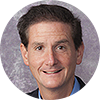
Switzerland / Sweden – Centre Hospitalier Universitaire Vaudois / University of Uppsala
When asked how the Van Wagenen experience made a difference personally and/or in his neurosurgical career, Dr. Pollack responded: On a personal level, it was a great opportunity to meet with and study under clinicians and scientists in different countries, and to experience living in a different culture. The techniques that I learned formed a foundation for my first several years of laboratory research, and helped me gain the experience needed to compete effectively for extramural funding.
When asked what he would say to future doctors considering applying for the Van Wagenen fellowships, Dr. Pollack responded: It is a unique opportunity to have a funded year of specialized laboratory or clinical training that may provide a foundation for a long-term career focus.
As the 1991 Van Wagenen Fellow, I plan to obtain a broad-based foundation in the molecular biology techniques currently being applied in the field of neurooncology in order to strengthen and extend my research background in preparation for a career as a clinician/scientist. During the fellowship period, the main focus of my research will deal with the growth factor biology and growth regulation of malignant gliomas, extending preliminary functional studies completed at the University of Pittsburgh. The long range goal of this work is to identify potential targets for selective chemotherapeutic approach has already been applied with some success in extraneural tumors; however, comparatively little work has been done to examine the potential applicability of this approach to malignant gliomas and other CNS tumors.
1990 – Walter A. Hall, MD, FAANS
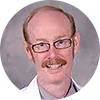
Norway / England – Norwegian Radium Hospital / Frenchay Hospital
When asked how the Van Wagenen experience made a difference personally and/or in his neurosurgical career, Dr. Hall responded: My Van Wagenen experience in Oslo, Norway with Dr. Oystein Fodstad allowed me to continue the early development of targeted toxins which were called immunotoxins at the time. One of the drugs we were developing was based on a toxin that has since been tested in two different clinical trials and is seeking FDA approval at this time. This early scientific work has led me to develop and patent my own targeted toxin that we are now in the process of performing the preclinical testing in order to secure an investigational drug number from the Food and Drug Administration. Our phase I trial has already been designed and approved by our institutional Investigational Review Board.
When asked what he would say to future doctors considering applying for the Van Wagenen Fellowship, Dr. Hall responded: The Van Wagenen Fellowship provides applicants with a once-in-a-lifetime opportunity to perform science on a higher level that should provide them with the ability to continue their science at their future academic institutions in order to advance their careers in neurosurgery. The career success of previous fellows demonstrates that this honor clearly allows recipients to develop their academic careers to the fullest.
During my Van Wagenen Fellowship, I spent 8 months with Dr. Øystein Fodstad in the Department of Tumor Biology at the Norwegian Radium Hospital in Oslo, Norway. My research was to test specific targeted toxins or immuna toxins in animal models of leptomeningeal neoplasia in preparation for future clinical trials. One month was also spent at the Frenchay Hospital in Bristol England with Drs. Hugh Coakham and John Kemshead examining delivery techniques for radiolabelled monoclonal antibodies in humans with carcinomatous meningitis.
This experience has helped me to establish a Neuro-Oncology Program at the University of Minnesota which is responsible for the management of more than 700 brain tumor patients at various stages of treatment. Unique therapies which are now available since my arrival include stereotactic radiosurgery, fractionated stereotactic radiotherapy, and blood-brain barrier disruption chemotherapy. I have established the Brain Tumor Research Fund of the Minnesota Medical Foundation which provides my laboratory with support for the development of experimental therapeutics. We are currently preparing tumor specific antisense oligonucleotides and targeted toxin proteins for clinical trials to be delivered by either convection enhanced diffusion of blood-brain barrier disruption. Our newest focus has been to develop a malignant gliomas anti-cancer vaccine for peripheral administration which is active in the central nervous system of animals. The initiation of a phase I clinical trial is expected to begin in 1997.
1989 – David W. Newell, MD, FAANS
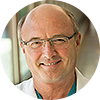
Switzerland – Inselpital
When asked how the Van Wagenen experience made a difference personally and/or in his neurosurgical career, Dr. Newell responded: The Van Wagenen Fellowship helped me to gain valuable research experience which I have continued to build upon to this day. The fellowship also helped me make and maintain valuable connections with other neurosurgeons in Europe who have been collaborators on a number of research projects.
When asked what he would say to future doctors considering applying for the Van Wagenen Fellowship, Dr. Newell responded: Physicians who are considering the Van Wagenen Fellowship will find it an extremely valuable experience following their residency to take time away from other distractions to focus on developing important research skills. These skills have the potential to be valuable for many years after the fellowship is over. The fellowship also allows direct observation of other training systems which may have relevance to future training in the United States. It is important to take advantage of the opportunity to establish ties with colleagues in the host countries, which can last a lifetime.
Dr. Newell continued his research related to cerebral blood flow and cerebral auto regulation which was the subject of his Van Wagenen Fellowship.
During my Van Wagenen Fellowship, I was in an active Department of Neurosurgery, directed by Professor Hans J. Reulen at the University of Bern, Switzerland. This department is the busiest neurosurgical unit in Switzerland and sees a large number of patients with head injuries and a wide spectrum of neurosurgical conditions. My scientific advisor was Professor Rune Aaslid who developed the first transcranial Doppler ultrasound device. During this time in Bern, we obtained the first autoregulation studies using TCD in head injured patients and developed a system to perform multimodal monitoring of middle cerebral artery velocity simultaneously with other physiological parameters. We were able to characterize impaired autoregulation in head injured patients and develop a model of the dynamic autoregulation response in humans based on the impairments which were seen in these head injured patients. This led to further developments and confirmation of the autoregulation measurement system which we are continuing to use to study autoregulation in pathological states. We also had the opportunity to characterize intracranial pressure B waves and develop an explanation as to their etiology.
The experience has allowed a time to be set aside to learn essential tools for future research on intracranial hemodynamics which has continued, and will continue, into the future. I feel that my experience has fulfilled one of Dr. Van Wagenen’s goals which was to have American neurosurgeons explore the development of new techniques abroad and introduce them to American neurosurgery.
1988 – Mark W. Jones, MD, FAANS
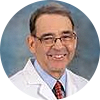
England – Queens Square
The Van Wagenen Fellowship afforded me the opportunity to work closely with great thinkers. My fellowship experience has had a direct, positive impact on my development as a neurosurgeon. I was freely and completely accepted into the work and social environments of these men. The skills that I developed by actively participating with these gentlemen have been invaluable. I was able to develop confidence and skill in dealing with issues in their respective fields that would have otherwise been impossible. Above all, I value their friendship and an ongoing, open dialogue that continues to satisfy and enlighten.
1987 – Emily D. Friedman, MD, FAANS
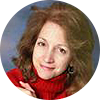
England / France / Sweden – Sandoz Institute/Hospital Salpetriere/Laboratory of Professor Bjorklund
The six months research experience in Europe was split between two labs, each with a different focus in studying glial transplantation. In London, the focus was cell culture methods and labeling with retroviral markers. In Paris, histochemical methods were used to evaluate the survival and extent of connections of glial transplants into rodent spinal cord. The research experience was invaluable in giving me a broader exposure to the field of transplantation science, and certainly helped me to successfully apply for and be awarded an NIH Clinical Investigator Award. On a personal side, I developed lasting friendships with my English and French colleagues, which I enjoy even today.
One of the greatest “gifts” of this Fellowship was the introduction to European colleagues, both neurosurgeons and scientists. These friendships led to many subsequent visits on both sides of the Atlantic, particularly when New York City was my home. Through these personal connections, I became involved with “The Myelin Project,” a working research team that is multi-national, devoted to the study of glial transplantation, and directed by Augusto Odone. His personal story and determination was the basis for the movie “Lorenzo’s Oil” with Susan Sarandon and Nick Nolte.
1986 – Edward George Hames III, MD, PhD, FAANS
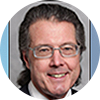
England – Kings College
When asked how the Van Wagenen experience made a difference personally and/or in his neurosurgical career, Dr. Hames responded: The Van Wagenen experience afforded me the tremendous opportunity to visit British neurology/neurosurgical centers in 1986. Through these encounters, lifetime friendships evolved with my family and many families of staff and registrars in training in the U.K. at that time. The fellowship afforded me a “window” to step away from those regions of residency and an opportunity for international neurosurgical exposure before entering neurosurgical practice.
When asked what he would say to future doctors considering applying for the Van Wagenen Fellowship, Dr. Hames responded: The opportunity for neurosurgical/neurological study internationally through the Van Wagenen fellowship is truly a treasure and completion of neurosurgical residency training.
1985 – Marc R. Mayberg, MD, FAANS
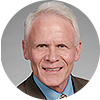
England – Queens Square
When asked how the Van Wagenen experience made a difference personally and/or in his neurosurgical career, Dr. Mayberg responded: The Van Wagenen Fellowship helped me initiate an academic career through a period of focused research prior to my first academic position. It also gave me the opportunity to travel through the major neurosurgical centers of Europe and meet European leaders in the field.
When asked what he would say to future doctors considering applying for the Van Wagenen Fellowship, Dr. Mayberg responded: I would strongly encourage them to apply for the reasons above.
The Van Wagenen Fellowship provided a critical experience at a formative part of my academic career. The basic research that I performed in Professor Symon’s laboratory relating to hemodynamics of brain stem ischemia and ionic cellular flux during ischemia were essential parts of my training in basic science and have been instrumental in my subsequent research. More importantly, however, was the opportunity to spend an interval in a unique and stimulating environment related to both basic research and clinical activities. Due to the pressures of busy clinical practices and research funding applications, very few neurosurgeons manage to take a true extended sabbatical during their academic career. The Van Wagenen Fellowship provided the unique opportunity to think and learn in a setting outside of the U.S. health care system. The Fellowship opened many doors to neurosurgical centers throughout the European continent, and provided an opportunity to learn firsthand the diversity of thinking and breadth of experience in the field of neurosurgery.
1984 – Edmund Frank, MD, FACS
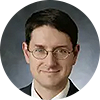
Switzerland – Universitaire Vaudis
When asked how the Van Wagenen experience made a difference personally and/or in his neurosurgical career, Dr. Frank responded: Established lifelong relationships with physicians in Europe. Established research methods – improved my writing abilities – opened my eyes to another way of looking at clinical problems – learned new techniques.
When asked what he would say to future doctors considering applying for the Van Wagenen Fellowship, Dr. Frank responded: Have Van Wagenen fit into your overall academic plans. Do not try to accomplish too much – even though you have a defined goal, use the time to travel and meet others.
The Van Wagenen Fellowship is unique in providing an international introduction to neurosurgical research and clinical care. The Fellowship is not just a year of work, but rather the base for a lifetime of academic interactions and friendships.
For my part, the Fellowship allowed me to find mentors who have been supportive as my career has progressed and it has been the basis for further exchanges that have been rewarding from both academic and personal perspectives.
1983 – Lawrence F. Borges, MD, FAANS
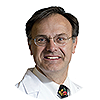
England – Merck, Sharpe & Dohme Research Laboratories
When asked how the Van Wagenen experience made a difference personally and/or in his neurosurgical career, Dr. Borges responded: The Van Wagenen Fellowship led to my career in academic neurosurgery. It allowed me to move from a research experience as a resident to an independent investigator with independent, extramural funding. In addition, the Van Wagenen Fellowship led to substantial personal friendships for me and for my family, which continue today. These friendships continue not only with my mentor, Dr. Susan Iversen, and her family, but also with others that we met during our stay in England.
When asked what he would say to future doctors considering applying for the Van Wagenen Fellowship, Dr. Borges responded: The generosity of Dr. Van Wagenen in establishing the Van Wagenen Fellowship offers an unparalleled opportunity for neurosurgical residents and their families to experience another culture and clinical or research experience before settling into a neurosurgical career. It builds bridges for the young neurosurgeon that will be valuable and enjoyable throughout his or her career.
The Van Wagenen Fellowship provided me with an unparalleled opportunity to broaden my research and cultural base and also to gain exposure to research in the pharmaceutical industry. When I first applied for the Fellowship, Dr. Susan Iversen, my mentor, was in the Psychology Department at the University of Cambridge. However, within several months, she left that position to direct the Preclinical Pharmacology unit for Merck, Sharp, and Dohme at their Neuroscience Research Center. Consequently, my research fellowship was spent with Dr. Iversen in a young Merck research laboratory. The experience was excellent. Dr. Iversen was a thoughtful, analytical, and caring research mentor. I studied neural transplantation and animal behavior in a first-rate laboratory. In addition, I developed many strong friendships that have continued on a personal and professional level. I returned to the laboratory for another month of research the year after finishing my Fellowship. The Van Wagenen Fellowship allowed me to gain valuable research experience while my family and I enjoyed rural England.
1982 – Larry Van Carson, MD, MBA, FACS, FAANS
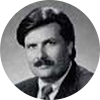
France – Hospital Foch
When asked how the Van Wagenen experience made a difference personally and/or in his neurosurgical career, Dr. Carson responded: The Van Wagenen Fellowship provided the opportunity to learn from some of the brightest and innovative physician/scientists of our time. The fellowship enriched my educational experience, providing a broader armamentarium of training which has been in valuable in career development.
When asked what he would say to future doctors considering applying for the Van Wagenen Fellowship, Dr. Carson responded: The Van Wagenen Fellowship allows the recipient and their family an unparalleled professional and personal growth experience. I feel the Van Wagenen Fellowship was a sentinel point in my personal and professional development. I am certain the fellowship will make a significant contribution to future recipients.
The Van Wagenen Fellowship provided me with one of the best years of my life. I was studying cutting edge techniques with two of the brightest, most innovative, and talented men our profession has to offer. Dr. Paul Tessier and Dr. Patrick Derome were always available to discuss philosophy, explain techniques, or solve problems. It is through their guidance and experience that the field of craniofacial surgery was shared with me.
Having made the decision to obtain training in both neurosurgery and plastic surgery, their mutual cooperation and respect further affirmed the correctness of my choice. This decision has been one of the most satisfying of my career allowing me the perspective of two surgical disciplines. I continue to enjoy the benefits both professionally and personally that the Van Wagenen Fellowship allowed me.
When asked what he would say to future doctors considering applying for the Van Wagenen Fellowship, Dr. Borges responded: The generosity of Dr. Van Wagenen in establishing the Van Wagenen Fellowship offers an unparalleled opportunity for neurosurgical residents and their families to experience another culture and clinical or research experience before settling into a neurosurgical career. It builds bridges for the young neurosurgeon that will be valuable and enjoyable throughout his or her career.
The Van Wagenen Fellowship provided me with an unparalleled opportunity to broaden my research and cultural base and also to gain exposure to research in the pharmaceutical industry. When I first applied for the Fellowship, Dr. Susan Iversen, my mentor, was in the Psychology Department at the University of Cambridge. However, within several months, she left that position to direct the Preclinical Pharmacology unit for Merck, Sharp, and Dohme at their Neuroscience Research Center. Consequently, my research fellowship was spent with Dr. Iversen in a young Merck research laboratory. The experience was excellent. Dr. Iversen was a thoughtful, analytical, and caring research mentor. I studied neural transplantation and animal behavior in a first-rate laboratory. In addition, I developed many strong friendships that have continued on a personal and professional level. I returned to the laboratory for another month of research the year after finishing my Fellowship. The Van Wagenen Fellowship allowed me to gain valuable research experience while my family and I enjoyed rural England.
1981 – Stephen J. Haines, MD, FAANS
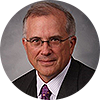
England – Radcliffe Infirmary
When asked how the Van Wagenen experience made a difference personally and/or in his neurosurgical career, Dr. Haines responded: My Van Wagenen Fellowship began a career-long thematic research program in the application of sophisticated clinical research techniques to neurosurgery. The opportunity to study with leaders in the development and application of clinical trials methodology to neurosurgical disease formed a solid base for expansion into other methodologies that have matured into the discipline of evidence-based medicine. It also allowed me to forge lifelong friendships with other clinical neuroscientists with similar interests.
When asked what he would say to future doctors considering applying for the Van Wagenen Fellowship, Dr. Haines responded: The Van Wagenen Fellowship offers a unique opportunity to pursue advanced training in fields where fellowship training support may be difficult or impossible to obtain. The infusion of expertise from other disciplines and other countries into American neurosurgery is an important purpose of the fellowship that will help to invigorate our field and maintain our leadership position.
The Fellowship allowed me an uninterrupted period of concentrated study in the application of randomized clinical trials to surgical procedures. This experience has fueled a career-long interest in that topic, which I have been able to broaden to cover a variety of methodologic approaches to the study of the outcome of neurosurgical diagnostic and therapeutic interventions. This preparation to participate in the current explosion of “outcomes” research has been invaluable.
1980 – L. Dade Lunsford, MD, FAANS
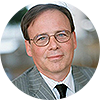
Sweden – Karolinska Sjukhuset
When asked how the Van Wagenen experience made a difference personally and/or in his neurosurgical career, Dr. Lunsford responded: My 1980-1981 experience at the Karolinska Institute, working with pioneers in image guided, stereotactic surgery and radiosurgery set the entire focus of my academic career. By concentrating on a subspecialty fellowship after a busy residency, I was able to fine tune my future career goals in a unique and stimulating environment.
When asked what he would say to future doctors considering applying for the Van Wagenen Fellowship, Dr. Lunsford responded: This opportunity is similar to a mid-career sabbatical, but done after completing a busy chief resident year. It provides an opportunity to explore new areas and again begin to think rather than just to react, to work with some of the brightest minds in modern medicine, and to prepare oneself for an academic leadership role in neurosurgery.
I did my Van Wagenen Fellowship at the Karolinska Institute in Stockholm, Sweden in 1980 under the direction of Professors Erik-Olof Backlund and Lars Leksell (deceased). My fellowship in stereotactic surgery, radiosurgery, and image guided surgery proved to be a crucial impetus to my subsequent academic career. Both my clinical research and my clinical practice during my Fellowship gave me the experience and tools to foster my goals of combining the most advanced imaging tools with minimally invasive surgical procedures. Since that time, more than 300 publications have been published based on concepts and techniques initially developed and anticipated during my Fellowship training.
1979 – George W. Tyson, MD, MBA, FAANS(L)
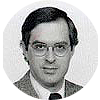
Scotland – Institute of Neurological Sciences
Although my Van Wagenen Fellowship was a very long time ago, its legacy is still fresh and immediate. My daughter, Diana, was only three months old when I dragged her and her mother off to the Wellcome Surgical Institute of the University of Glasgow. Today, Diana is a freshman at that same University and her “second parents” (and the source of most of my peace of mind) are Graham and Evelyn Teasdal.
One moment that truly completed the circle that began so long ago with my Fellowship was related to me by Diana: In trying out for the debating team (she was one of two freshman who made it), she was accosted by a distinguished looking gentleman who wanted to know if she was the same Diana Tyson who was the daughter of “that American neurosurgeon.” When she said that she was, the gentleman replied “but you are supposed to be a baby!” The gentleman was Sam Galbraith, who in 1979 was a distinguished neurosurgeon at the University of Glasgow and who today is a distinguished Member of Parliament. As Sam told Diana, the last time he had seen her, he had burped her over his shoulder.
All I can say to those of you who afforded me this opportunity is: Thank you. The experience is lasting me a lifetime.
1978 – Jay D. Law, MD
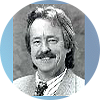
Spain – Centro Ramon y Cajal
I studied applied electrical neurophysiology under Dr. Jose M.R. Delgado at Centro Ramon y Cajal Institute in Madrid. Building on this background, I’ve devoted most of my neurosurgical career to implanting and improving electrical stimulators of intractable pain. There is an undeniable continuity in that educational experience and my clinical practice for which I am grateful.
1977 – William F. Chandler, MD, FAANS(L), FACS
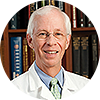
Sweden – Karolinska Institute
When asked how the Van Wagenen experience made a difference personally and/or in his neurosurgical career, Dr. Chandler responded: The Van Wagenen Fellowship provided me with a once-in-a-lifetime opportunity and experience. My wife and I lived and worked in an environment totally foreign to us – one which we never would have experienced without the support and encouragement of the fellowship. This experience gave me a prestigious jump start on an academic career in neurosurgery. It allowed me to greatly broaden my then limited view of clinical neurosurgery.
When asked what he would say to future doctors considering applying for the Van Wagenen Fellowship, Dr. Chandler responded: Have the courage to delay your academic career and financial needs for a while and go for this once-in-a-lifetime experience. You are only young once and this type of experience is invaluable to a young neurosurgeon wishing to gain clinical and academic experience. You can always find funding for research, but the Van Wagenen experience is so much more.
My family and I had a wonderful and very memorable experience in Stockholm in 1977. It was a perfect time in my overall training to gain clinical and research experience in a totally new environment. I continue to strongly recommend to residents finishing training that they consider spending at least part of a year abroad. I remain grateful to the Van Wagenen Fellowship program that it inspired me to seek out this great experience.
1976 – Patrick J. Kelly, MD, FAANS(L), FACS
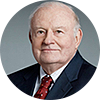
France / Scotland – Saint Ann and Foch Hospitals / Western General Hospital
When asked how the Van Wagenen experience made a difference personally and/or in his neurosurgical career, Dr. Kelly responded: I learned new techniques that I refined and have used throughout my career. I made personal contacts that have remained friends to this day. I learned to speak French (albeit badly) and experienced Paris and France which I have enjoyed returning to often. I am not considered just another American neurosurgeon but instead am part of an international community of neurosurgeons.
When asked what he would say to future doctors considering applying for the Van Wagenen Fellowship, Dr. Kelly responded: Do it!
I spent 9 months learning specialized stereotactic techniques under the direction of Professors Talaraich, Guiot, and Gillingham, who at that time were the leaders in stereotactic neurosurgery. I was able to use that experience upon my return to an academic position at the University of Texas. I modified some of their procedures and then added computer support to allow progression from point-in-space stereotaxis to volumetric stereotaxis. I believe that my experience as a Van Wagenen Fellow was critical in my career.
1975 – Lawrence H. Pitts, MD, FAANS(L)
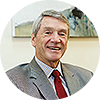
Scotland – Institute of Neurological Sciences
Dr. Pitts had a superb experience during his fellowship studying under Professor Bryan Jennett at the Institute for Neurological Sciences in Glasgow, Scotland. He was able to investigate cerebral vasospasm in subarachnoid hemorrhage, acute spinal cord injury in an animal model, and the effects of apnea on intracranial hemodynamics in animals. Many of the current leaders in British neurosurgery were in training in Glasgow at that time, and Dr. Pitts has maintained close personal relationships with many of them.
The Van Wagenen Fellowship allows a prospective neurosurgery academician to get well outside his or her own research and training sphere, and to pursue new basic, applied or clinical research at some of the most prestigious international research institutions. The international setting not only likely will broaden the fellow’s research perspectives, but almost certainly will extend his or her cultural views beyond what is seen at home. And the international experience will foster lifelong friendships “across the waters” in ways unavailable to most neurosurgeons. I believe that it was both the research and the personal experiences that Dr. Van Wagenen valued during his time abroad, and that led him to establish the fellowship and encouraged the Van Wagenen family to continue.
I was fortunate to be at the Institute of Neurological Sciences in Glasgow in 1976 when Brian Jennett was Professor, and his younger faculty and trainees included what is now the heart of British academic neurosurgery – the late Douglas Miller, David Thomas, Graham Teasdale, and John Pikard. My friendship with them has continued along with scientific collaboration, and through them I have met other younger prominent British neurosurgeons including David Mendelow, Ross Bullock and Fausto Ianotti. Basic and clinical neuroscientists with whom I had the good fortune to work and drink include Hum Adams, David Graham, Jack Rowan, David Wyper, Murray Harper, Jim McCullough and Ian MacKensie. Glasgow was an exceptional place to work at this time, but even more important to me than my studies there, are the close personal relationships I developed then and have kept ever since. The Van Wagenen Fellowship has enriched my professional life more than any other single accomplishment.
1974 – W. Michael Vise, MD
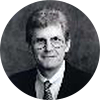
Germany – Max Planck Institute
I spent fourteen months as a Van Wagenen Fellow in 1975 and 1976. I was based at Max Planck Institute in Cologne, Germany, studying cerebral metabolism and blood brain barrier injuries with Peter Hossman. I took trips through the year to approximately three dozen neurosurgical centers in Eastern and Western Europe. Of particular value were the several weeks I spent observing operations performed by Dr. Yasargil in Zurich.
Midway into my Fellowship, I had the opportunity to spend a month in the Soviet Union on a U.S.-Soviet Scientific Exchange Program which was sponsored by the National Institutes of Health. I visited the neurosurgical centers of Moscow, Kiev, and Leningrad and greatly enjoyed the Russian experience and culture.
I consider myself extremely fortunate and honored to have had this opportunity to travel and learn as a Van Wagenen Fellow. It has had important effects upon my life, my view of the world, and the development of my career as a neurosurgeon.
1973 – Joan L. Venes, MD
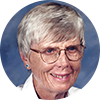
Scotland – Wellcome Research Institute
When asked how the Van Wagenen experience made a difference personally and/or in her neurosurgical career, Dr. Venes responded: I used mine to travel to several different sites in Europe where ICP monitoring was being done. When, as a resident at an M&M conference, I presented a case in which I used that technique, one neurosurgeon literally jumped to his feet “Are you telling me you passed a catheter through a sick brain?!” It was my experience as a Van Wagenen fellow that allowed me to defend myself and the methodology I had used in the management of a very ill child with Reye’s syndrome. As one of only a few pediatric neurosurgeons in the country, I was, unfortunately, never able to find the time I needed to follow through with the needed laboratory research.
1972 – Robert A. Ratcheson, MD FAANS(L)
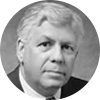
Sweden – Brain Research Laboratory
When asked how the Van Wagenen experience made a difference personally and/or in his neurosurgical career, Dr. Ratcheson responded: The Van Wagenen Fellowship was instrumental in development of my academic career. It provided opportunities for learning and laboratory work free of other responsibilities and was an important time.
When asked what he would say to future doctors considering applying for the Van Wagenen Fellowship, Dr. Ratcheson responded: For the committed academic, this fellowship offers terrific scientific and cultural opportunities. It can serve as a great start to a career
My Van Wagenen Fellowship was spent at Lund University in Southern Sweden in the Brain Research Laboratory headed by Dr. Bo Siesjo. The laboratory studied cerebral energy metabolism and the pathophysiology of cerebral ischemia. The laboratory was run with a friendly and exciting atmosphere and a strict dedication to the scientific method. This experience has influenced my clinical and research interests throughout my career. I especially remember Professor Siesjo’s warm hospitality, great energy, unending curiosity, and outstanding problem solving abilities. Also, during this time, a lifelong friendship began with Dr. Bengt Ljunggren for which I remain most grateful.
1971 – Ira C. Denton, Jr., MD, FAANS(L)
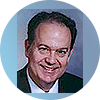
Switzerland – Kantonsspital Zurich
When asked how the Van Wagenen experience made a difference personally and/or in his neurosurgical career, Dr. Denton responded: The Van Wagenen Fellowship blew great good fortune my way. It transported me during the birth of the micro-neurosurgical revolution to one of its centers, the Kantonsspital Zurich, and into the whirl of new ideas, people, tools and techniques, all there because of Professor Yasargil’s genius.
The Van Wagenen Fellowship provided a source of strength during the challenges of a neurosurgical career and an introduction to the many neurosurgeons that have subsequently influenced the profession and me personally. The Van Wagenen “brand” provided a valuable entrée to many professional opportunities.
When asked what he would say to future doctors considering applying for the Van Wagenen fellowships, Dr. Denton responded: I would advise any neurosurgical resident who is considering applying for the Van Wagenen Fellowship to “go for it” without further delay. I view the Van Wagenen Fellowship as a powerful first step into the future of neurosurgery. Your Van Wagenen experience will be forever a personal and professional asset.
With microtechniques, the operating microscope and the bipolar cautery now standard tools, it is hard to imagine the formidable resistance to change that the fathers of microneurosurgery overcame. On a train ride to Basel, Professor Yasargil told a Turkish proverb that provided some insight. The proverb said in essence, ‘sometimes you have to walk through a tree rather than around it.’
The Van Wagenen experience provided a source of strength during the challenges of a neurosurgical career and an introduction to many neurosurgeons who passed through Zurich then who have influenced the profession and me personally. For all of this, I am extremely grateful.
1970 – M. Peter Heilbrun, MD
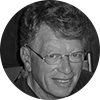
Denmark – Bispejerg & Rigs Hospitals
When asked how the Van Wagenen experience made a difference personally and/or in his neurosurgical career, Dr. Heilbrun responded: During my 1970-1971 Van Wagenen Fellowship year, I studied cerebral blood flow under the mentorship of Dr. Neils Lassen at the Bispebjerg and University Hospitals in Copenhagen, Denmark. This period of time allowed me to consolidate my early neurosurgical research interests in cerebrovascular disease and cerebral hemodynamics and intracranial pressure. This research served me well in my early academic years at the University of Utah. After the introduction of CT scanners in the mid 1970s, my academic interests shifted to stereotactic methodologies, which I pursued until I stopped the operative practice of neurosurgery at age 65. For the past five years, I have been involved in training surgeons and radiation oncologists on how to use non-isocentric radiosurgery utilizing the CyberKnife, an image guided robotic radiosurgery device developed at Stanford by John Adler. My fellowship year is now far in the past. The research methods I learned served me well throughout my neurosurgical career.
The opportunity to spend my Fellowship year studying cerebral circulation and intracranial pressure in Copenhagen, under the direction of Niels Lassen, solidified the neurosurgical principles and skills that I was taught by Henry G. Schwartz. The collaborative research that developed with Jes Olesen, Olaf Paulson, Paul Balslev-Jorgensen, Paul Broderson, John Rishede, and Hans Broager provided me with a critical perspective that has served me well during my academic career. As I look back twenty-six years later, it is clear that the value of that wonderful time is incalculable.
1969 – John M. Tew, Jr., MD, FAANS(L)
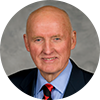
Sweden – Kanatonsspital Zurich
When asked how the Van Wagenen experience made a difference personally and/or in his neurosurgical career, Dr. Tew responded: When I received the Van Wagenen Fellowship, it was not only a great honor, but an impetus for many areas of my career. This experience allowed me to focus my neurosurgical expertise under the guidance of Gazi Yasargil, who was my model as I moved into a teaching role with many residents and fellows who trained at our institution. The fellowship was the beginning of my career in microneurosurgery for the treatment of neurological disorders. The personal relationships afforded by this fellowship extended globally – with patients, surgeons, and various health providers over many continents and cultures during many years.
When asked what he would say to future doctors considering applying for the Van Wagenen Fellowship, Dr. Tew responded: The Van Wagenen Fellowship will open many doors and will challenge you on many levels. The experience will encourage your best, professionally and personally, to inspire others. The experience will be transformative and will afford you the opportunity to effect improvements for neurosurgical patients throughout your career. Continue to think globally, offer your wisdom across borders and be open to many possibilities.
I was fortunate to be the 2nd recipient of the William P. Van Wagenen Fellowship, which enabled me to study with Professors Yasargil and Krayenbuhl in Zurich. While there, I was exposed to a new paradigm of surgery of the brain. Microscopic surgery changes neurological surgery by a quantum leap. This opportunity created by the Van Wagenen Fellowship changed my life by opening my eyes to new possibilities for surgical correction of disorders which were previously hopeless.
In addition, the experience in Europe exposed me to many new colleagues who have subsequently became close friends and have nurtured an international fellowship that has advanced the care of our patients and the education of students.
1968 – Richard M. Bergland, MD
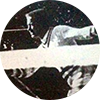
United Kingdom – Oxford University
When asked how the Van Wagenen experience helped his career, Dr. Bergland responded: The Van Wagenen award allowed me to work with Professor Geoffrey Harris at Oxford. We became friends and he encouraged me to study brain/pituitary relationships – both anatomical and physiological relationships. Because of the gasoline which he poured into my tank, I was able to enjoy seven years in happy experimental lab work … untangling complexities.
When asked what he would say to future physicians who are considering applying for the Van Wagenen Fellowship, Dr. Bergland responded: Use the Van Wagenen support to work with a world-class basic scientist. Pathology (the study of disease) is NOT a basic science. The future of important brain basic science will be within the arena of quantum mechanics; studies of the quantum wavicles within ordered water will be the most productive; the understanding that the cerebellum is using purkinje cell quantum wavicles to pump water up to the cerebrum will revolutionize both basic brain science and bedside clinical care. Beware of hospitals, medical schools, and the AANS … to reach the frontier of science you cannot hold hands with anyone … You must remain alone … be more substantial then you appear to be … do lots of experiments, but do not publish your results… publishing papers is seldom rewarding to the writer or to the reader … science is mankind’s highest activity … science requires lots of time and lots of solitude … amending your own mind is very, very satisfying … amending other people’s minds is a fruitless, unsatisfying effort.
Building neurosurgery departments (I built four) pulls your eye away from worthwhile scientific work. Fee-for-service neurosurgery pulls most neurosurgeons and medical schools away from scientific work. Do not become a “teacher” … neurosurgery can be “learned: neurosurgery cannot be taught.” Finding science mentors who will let you stand on their shoulders is a sound career strategy. Then … find apprentices who are smarter than you are … let them stand on your shoulders. Write many books and produce many movies. But let them be unearthed after you are earthed. Enjoy your science accomplishments … others who see them will give you more hoots then hosannas … Play sports … enjoy your body. Pray daily … enjoy your soul.
At the time of the Fellowship’s 25th Anniversary, Dr. Bergland wrote the following to Mrs. Van Wagenen: “Your husband’s mentors & heroes – Osler, Halstead, Flexner, Cushing – were the ones who pushed science and international friendships into the mainstream of medicine. How thoughtful it was that he had the wisdom to recognize the importance of this mentor chain. ‘What is the Van Wagenen Fellowship?’ A bridge between the very best old traditions and the very best new traditions. It changed my life and I thank you deeply.”
